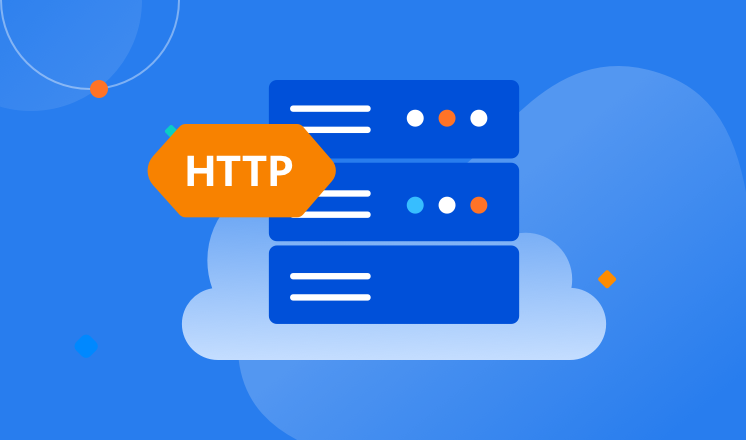Proxies play a crucial role in the world of the internet, serving as intermediary servers that forward network requests and responses between clients and servers.
Utilizing proxies can bring various advantages, including accessing restricted websites, safeguarding privacy, and enhancing network security.
This article aims to provide a beginner's guide to understanding the basic concepts and purposes of proxies, offer step-by-step instructions on using proxies, and present common application examples such as accessing specific websites or protecting privacy. Furthermore, it emphasizes the importance of using proxies lawfully and adhering to essential considerations to avoid violating network rules and laws.

The Basic Concepts and Purposes of Proxies:
A proxy is a server that acts as an intermediary between clients and servers, forwarding network requests and responses between the two.
When a user sends a request, it first passes through the proxy server, which then submits the request to the target server on behalf of the user.
Once the target server receives the request, it sends the response back to the proxy server, which in turn delivers it to the user. Proxies can be classified into forward proxies (commonly known as regular proxies) and reverse proxies, each serving different purposes.
Purposes of Using Proxies:
Accessing Restricted Websites: Some websites may be blocked in certain regions due to geographical or policy reasons.
By using a proxy, users can change their virtual location, bypassing geographical restrictions and gaining access to blocked websites.
Protecting Privacy: Proxy servers can hide a user's actual IP address, enhancing online privacy. When users access websites through a proxy server, the target server only sees the proxy server's IP address, making it unable to trace the user's true identity and location.
Enhancing Network Security: Proxy servers can function as firewalls, intercepting malicious requests and blocking potential network attacks. Additionally, accessing network resources through a proxy server prevents direct exposure of a user's device's real IP address, thus bolstering network security.
Steps to Use Proxies:
For beginners, using proxies might seem a bit complex, but following these steps will help you easily set up and enjoy their advantages:
Step 1: Choose an appropriate proxy server. You can opt for free proxy servers, but be cautious as they might be unstable and pose security risks. Alternatively, consider using paid proxy services for more reliable and enhanced privacy protection.
Step 2: Manually configure the proxy (if required). Sometimes, manual configuration of the proxy server's address and port number may be necessary. This can be done in the network settings of your operating system or web browser.
Step 3: Use proxy plugins (optional). For web browsers, you can use proxy plugins to conveniently switch proxies. For instance, in the Chrome browser, installing a proxy plugin enables you to easily enable or disable the proxy.
Step 4: Confirm proxy settings. After setting up the proxy, verify that the configuration is effective by visiting specific websites or checking your IP address.
Common Application Examples:
Below are some common examples of using proxies:
1. Accessing Specific Websites: Suppose you want to access a website that is blocked in your region. Using a proxy allows you to change your virtual location, bypass geographical restrictions, and successfully access the site.
2. Privacy Protection: When using public Wi-Fi or other insecure network connections, you can utilize a proxy to hide your real IP address, enhancing your online privacy.
3. Enhancing Network Security: When accessing unfamiliar or untrusted websites, using a proxy can serve as a security measure, intercepting potential malicious requests and safeguarding your device.
4. Overcoming Geographical Restrictions: Some streaming services are only available in specific regions. By using a proxy, you can alter your virtual location, enabling access to streaming content from different regions.

Legitimate Use and Considerations:
Using proxies is legal; however, it is essential to consider the following:
1. Comply with Network Rules and Laws: When using proxies, ensure compliance with the network rules and laws applicable in your region. Some areas may impose restrictions or prohibit the use of proxy servers.
2. Select Trusted Proxies: If you choose to use proxy service providers, opt for reputable and reliable ones to ensure data security and stability.
3. Exercise Caution with Free Proxies: Free proxies may be unstable and pose security risks. It is advisable to use paid proxy services for better service and privacy protection.
4. Mind Sensitive Information: When using proxies, avoid entering sensitive personal information or engaging in high-risk activities such as banking transactions to prevent information leakage.
Conclusion:
Using proxies is a valuable network tool that allows users to access restricted websites, protect privacy, and enhance network security.
For beginners, configuring and using proxies may require some guidance and consideration, but by following the instructions and recommendations provided in this article, you can easily master the art of using proxies.



